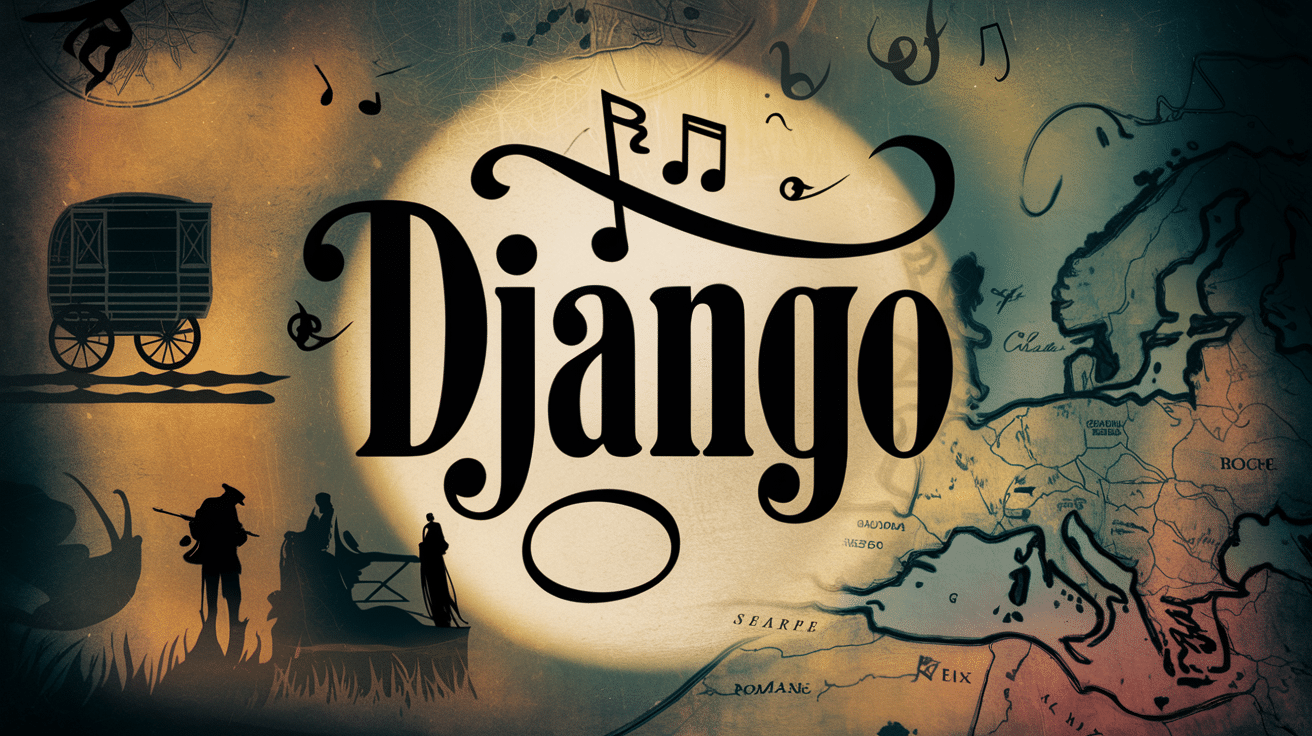Many Python fans wonder about the story behind Django’s name. They know it’s a powerful web framework but often ask, “Why Django?”
This name question pops up for beginners and pros alike. The origin isn’t obvious at first glance, and many coders are curious about the story.
Django’s name has an interesting history that connects to more than just coding. The backstory adds fun context for anyone who uses this tool. Understanding where names come from can make learning frameworks more engaging.
This blog will explain the real story behind Django’s name. It will cover the musical connection, why the creators chose it, and how to properly say it. Readers will learn the full history in a way that’s easy to understand.
The Mystery: Django Name Origin

Django, the popular web framework for Python, got its name from jazz guitarist Django Reinhardt. Born in Belgium in 1910, Reinhardt became famous for his amazing guitar skills despite having two fingers paralyzed after a fire.
He created a unique playing style and is now seen as one of the greatest jazz guitarists in history.
The creators of the web framework chose this name as a tribute to Reinhardt’s talent and ability to do incredible things despite limitations.
The Django software team wanted a name that would stand out and honor someone who showed creativity when facing challenges.
Much like how Reinhardt found new ways to play guitar with fewer fingers, the Django framework aims to help developers build complex websites efficiently with less code and effort.
The name also has a distinctive sound that’s memorable and different from other tech projects.
The pronunciation follows the musician’s name; the “D” is silent, so it sounds like “JANG-oh.” This naming choice connects the technical world of web development with the artistic world of jazz, giving the framework a rich cultural background beyond just code.
Spiritual Meaning: Django Name Origin

Names often carry vibrations and energies beyond their surface meanings. In many traditions, a name’s spiritual significance can shape a person’s path.
The name Django, while famous for both a jazz legend and a web framework, holds several spiritual interpretations.
1. Awakening Consciousness
The Romani, meaning “I awake,” suggests a soul that brings awareness and awakening to others. People named Django might naturally help others see the truth and expand their consciousness.
2. Overcoming Limitations
Connected to Django Reinhardt’s story of musical mastery despite physical limitations, this name signifies the spirit’s ability to transcend physical constraints.
3. Creative Expression
The name carries strong creative energy, pointing to souls who express themselves through art, music, or other creative outlets.
4. Resilience Through Hardship
Django signifies spiritual toughness and the ability to thrive after difficulty, representing transformation through challenge.
5. Harmonious Balance
Drawing from musical roots, the name suggests an ability to create harmony from discord and find balance in life’s variations.
6. Freedom of Spirit
With roots in marginalized Romani culture, Django represents free-spirited energy and resistance to confinement or restriction.
7. Bridge Between Worlds
Just as the name bridges tech and art, Django spiritually represents connecting different realms, ideas, or communities that might otherwise remain separate.
Everything You Need to Know About Django Reinhardt

Django Reinhardt transformed jazz guitar playing in the 1930s and 40s. Born in Belgium to a Romani family in 1910, his life changed when a fire injured his left hand at age 18, leaving two fingers partially paralyzed.
Instead of giving up music, Django created a new technique using his three working fingers. This limitation became his signature style.
He joined with violinist Stéphane Grappelli to form the Quintette du Hot Club de France, creating “Gypsy jazz” or “hot jazz.”
His compositions like “Minor Swing” and “Nuages” remain jazz classics today. What makes his story remarkable is how he turned a major setback into a unique sound.
Django died young at 43, but his impact on music continues decades later, inspiring countless guitarists and even a popular web framework named in his honor.
Understanding Django: The Web Framework
Django is a high-powered Python web framework that makes building websites faster and easier. Created in 2003 by Adrian Holovaty and Simon Willison, it started as an internal project at a newspaper company.
The team needed to build websites quickly while maintaining clean, maintainable code.
Django follows the “batteries-included” philosophy, which means it comes with many built-in features that developers need. This approach saves time and reduces the need to write common web functions from scratch.
The following are a few key features of Django:
- Model-View-Template (MVT) architecture: Django organizes code in a way that keeps data, user interface, and business logic separate
- Admin interface: Comes with a ready-to-use admin panel that makes content management simple
- ORM (Object-Relational Mapping): Lets developers work with databases using Python code instead of SQL
- Form handling: Makes collecting and validating user input straightforward
- Security features: Built-in protection against common web attacks like SQL injection and cross-site scripting
Django is known for its “Don’t Repeat Yourself” (DRY) principle. This means that developers write less code, which leads to fewer bugs and easier maintenance.
Many major websites and apps like Instagram, Pinterest, Mozilla, Spotify, and The Washington Post rely on Django for their backend systems.
Django works well for both small projects and large-scale applications that need to handle millions of users. It continues to grow in popularity because it strikes a good balance between speed of development and powerful features.
Similar Names to Django
1. Diego
- Meaning: “Supplanter”
- Origin: Spanish
- Gender: Male
2. Jango
- Meaning: “God is gracious”
- Origin: Portuguese (variant of Django)
- Gender: Male
3. Rango
- Meaning: Fictional name
- Origin: Pop culture/Western-inspired
- Gender: Male
4. Mungo
- Meaning: “Dear one” or “beloved”
- Origin: Scottish
- Gender: Male
5. Arlo
- Meaning: “Fortified hill”
- Origin: Old English/Spanish
- Gender: Male
6. Iago
- Meaning: “Supplanter”
- Origin: Spanish/Welsh (form of Jacob or James)
- Gender: Male
7. Zorro
- Meaning: “Fox”
- Origin: Spanish
- Gender: Male
8. Bongo
- Meaning: “Drum” or rhythmic name
- Origin: African (Bantu languages)
- Gender: Male
9. Dario
- Meaning: “Possesses goodness”
- Origin: Italian/Spanish (from Persian)\
- Gender: Male
10. Jett
- Meaning: “Black gemstone”
- Origin: English
- Gender: Male
11. Franco
- Meaning: “Free man”
- Origin: Italian/Spanish
- Gender: Male
12. Rocco
- Meaning: “Rest”
- Origin: Italian/Germanic
- Gender: Male
13. Enzo
- Meaning: “Ruler of the home” or “winner”
- Origin: Italian
- Gender: Male
14. Cosmo
- Meaning: “Order, beauty, or universe”
- Origin: Greek/Italian
- Gender: Male
15. Brando
- Meaning: “Sword” or “fiery torch”
- Origin: Italian/Germanic
- Gender: Male
16. Hugo
- Meaning: “Mind” or “intellect”
- Origin: Germanic/Spanish
- Gender: Male
17. Draco
- Meaning: “Dragon” or “serpent”
- Origin: Latin/Greek
- Gender: Male
18. Nico
- Meaning: “Victory of the people”
- Origin: Italian/Greek (diminutive of Nicholas)
- Gender: Male
19. Largo
- Meaning: “Wide” or “broad”
- Origin: Italian/Spanish
- Gender: Male
20. Vigo
- Meaning: “War-ready” or “battle”
- Origin: Latin/Scandinavian
- Gender: Male
21. Gino
- Meaning: “Ever-living” or “well-born”
- Origin: Italian (diminutive of names ending in -gino)
- Gender: Male
Wrapping It Up
The story behind Django’s name shows how coding and music can connect in surprising ways. Looking back at what we’ve learned, Django Reinhardt’s influence extends beyond jazz into the world of programming.
His legacy lives on not just in musical recordings but in code written by developers worldwide.
The name choice reflects something important about software development: it’s both technical and creative.
Much like Reinhardt played jazz with his distinctive style despite physical limitations, Django the framework helps developers build web applications efficiently despite constraints.
The next time you use this Python framework or hear someone mention it, you’ll understand the rich history behind its name.
This small detail adds color to the technical world and reminds us that programming tools have human stories behind them, stories worth knowing and sharing.




